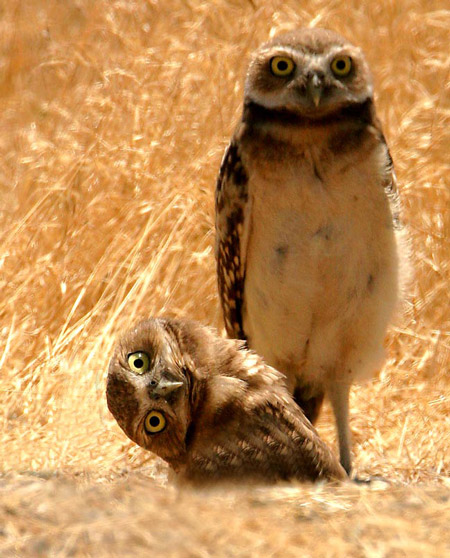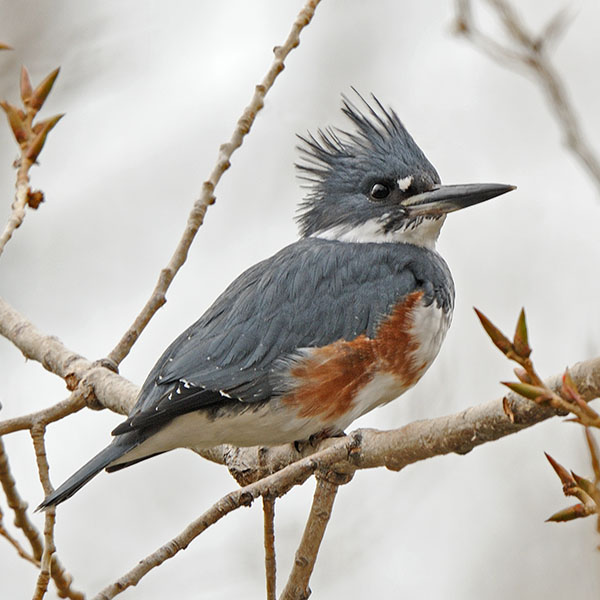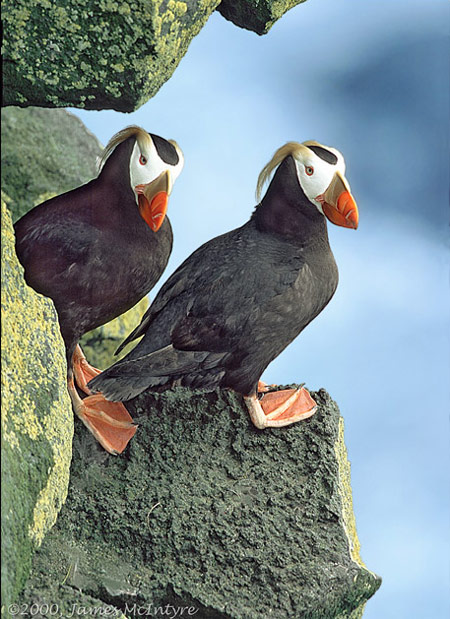|
|
|
Introduction |
Secluded Place |
Scrape | Mound | Burrow | Cavity | Plate |
Platform |
Pendant | Sphere |
Cup | Host | |
Burrow Nests
Some
North American birds that use burrows as nests are: puffins,
shearwaters, kingfishers, and Burrowing Owls. Here are three
specific examples:
|
|
 Burrowing
Owls nest in abandoned Prairie dogs burrows or those of other
burrowing mammals. They use their extra large legs and feet
to modify the burrows to their liking. They often line their
burrows with cattle or horse droppings and can use the same nests
year after year if undisturbed. Burrowing
Owls nest in abandoned Prairie dogs burrows or those of other
burrowing mammals. They use their extra large legs and feet
to modify the burrows to their liking. They often line their
burrows with cattle or horse droppings and can use the same nests
year after year if undisturbed.
They usually lay between 7 and 9 eggs which
both parents incubate for about 28 days. When distressed,
the young can mimic the rattling sound of a rattlesnake to ward
off intruders. |
Juvenile Burrowing Owls, by Kent Keller
ŠKent R. Keller
|
|
 Belted
Kingfishers dig a horizontal or slightly upward-sloped burrows
in the bank of a stream, river lake or even sand pits and railroad
cuts. The burrows are 3 to 4 inches in diameter and usually
3 to 7 feet long, although they can be much longer. Using
their bills and feet, It can take them from 3 days to several week
to dig the burrow which ends in a chamber which is
about 6 by 10 inches. Belted
Kingfishers dig a horizontal or slightly upward-sloped burrows
in the bank of a stream, river lake or even sand pits and railroad
cuts. The burrows are 3 to 4 inches in diameter and usually
3 to 7 feet long, although they can be much longer. Using
their bills and feet, It can take them from 3 days to several week
to dig the burrow which ends in a chamber which is
about 6 by 10 inches.
They usually lay 6 or 7 white eggs which they incubate for 23 or 24
days. After hatching, the young stay in the nest for at
least 23 days. |
Female Belted Kingfisher, by John Crawley
ŠJohn Crawley
|
 Tufted
Puffins dig a burrow on the crests of hills on islands or in
sandy cliffs above a beach. They also nest in colonies on
sandy slopes with other member of the Auk Family. They lay
one egg which is incubated by both parents. Tufted
Puffins dig a burrow on the crests of hills on islands or in
sandy cliffs above a beach. They also nest in colonies on
sandy slopes with other member of the Auk Family. They lay
one egg which is incubated by both parents. |
Tufted Puffins, by James McIntyre
ŠJames McIntyre
|